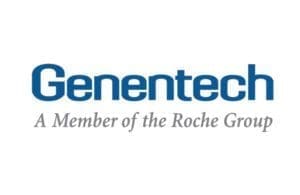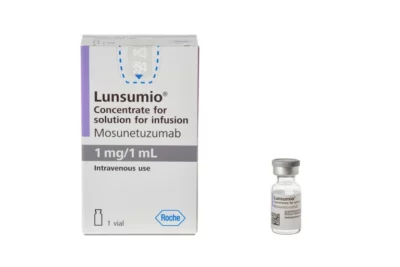 In late 2022, the FDA approved Genentech‘s Lunsumio (mosunetuzumab-axgb), a bispecific antibody for relapsed or refractory follicular lymphoma (R/R FL) patients who have received at least two prior systemic therapies.
In late 2022, the FDA approved Genentech‘s Lunsumio (mosunetuzumab-axgb), a bispecific antibody for relapsed or refractory follicular lymphoma (R/R FL) patients who have received at least two prior systemic therapies.
We recently caught up with Ginna Laport, VP, global head of lymphoma/CLL development franchise at Genentech, to learn more about how the drug could change the treatment landscape for relapsed or refractory follicular lymphoma.
In the following interview, Laport also shares the background story of Lunsumio and Genentech’s plans to continue investigating Lusumio as a monotherapy and in combination with other medicines for blood cancers.
What is your view on how the approval of Lunsumio will change the treatment landscape for relapsed or refractory follicular lymphoma?

Ginna Laport
Laport: Before I joined Genentech, I spent nearly 20 years treating patients with follicular lymphoma (FL), a common form of non-Hodgkin’s lymphoma (NHL) considered incurable. I know firsthand how challenging FL is to treat and the impact it has on patients – especially since the disease often relapses after initial treatment and can become increasingly difficult to treat each time a relapse occurs.
The approval of Lunsumio (mosunetuzumab-axgb), a first-in-class bispecific antibody, is significant news for the hematology-oncology community and has the potential to change the treatment landscape. As Lunsumio is a fixed-duration treatment, it allows people with FL to have time off therapy instead of staying on treatment until their cancer grows or spreads.
Other treatments for FL, such as cell therapies, require the collection or genetic modification of cells and can take a month or longer to manufacture, leading to delays in treatment – and must be administered at an academic medical center. Lunsumio is off-the-shelf and can be administered in an outpatient setting, so people with FL can start treatment right away and potentially close to home.
Please briefly describe how Genentech worked with Biogen in developing Lunsumio?
Laport: We have a long-standing collaboration with Biogen in the US on antibodies targeting CD20. Biogen will have joint decision-making rights related to the development and commercialization of Lunsumio in the U.S. Genentech will continue to lead the strategy and implementation of the Lunsumio program.
Could you describe the backstory of how Genentech discovered and developed Lunsumio and its future plans for the bispecific antibody?
Laport: The discovery of Lunsumio began at Genentech almost 15 years ago – in 2009. Using insights and experience gained from developing one of the first monoclonal antibodies for cancer, Genentech engineers created a technology called “knobs-into-holes” that solved the challenge of precisely assembling the two different antibody halves that make up a bispecific antibody. Once Genentech scientists successfully produced the bispecific antibody that would eventually become Lunsumio, they devised additional novel technology to manufacture it with sufficient purity at scale. We are very proud that Lunsumio was discovered and developed by our own Genentech scientists.

[Image courtesy of Genentech/Roche]
As part of our clinical development program in NHL, which is the broadest and most advanced in the industry, we are also investigating another CD20xCD3 bispecific, glofitamab. Recently, the FDA accepted our Biologics License Application (BLA) and granted Priority Review for glofitamab to treat people with relapsed or refractory large B-cell lymphoma (LBCL) after two or more lines of systemic therapy, with an expected decision on approval of this novel cancer immunotherapy by July 1, 2023. If approved, glofitamab would be the first fixed-duration CD20xCD3 T-cell engaging bispecific antibody to treat people with the most aggressive type of NHL.
Filed Under: Oncology





Tell Us What You Think!
You must be logged in to post a comment.